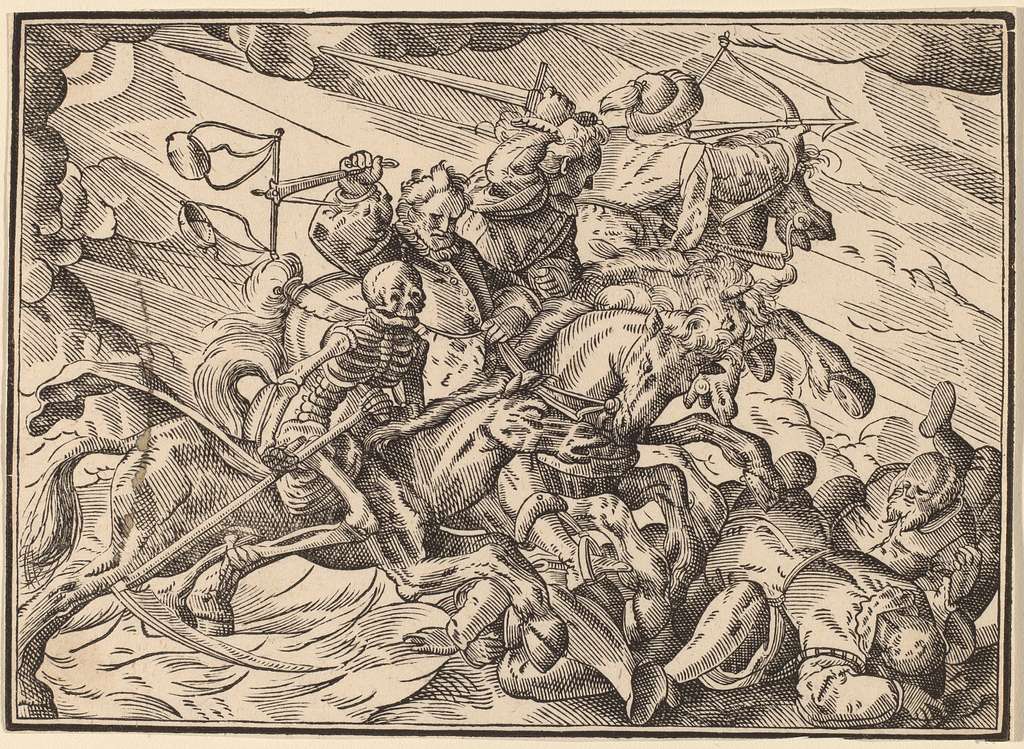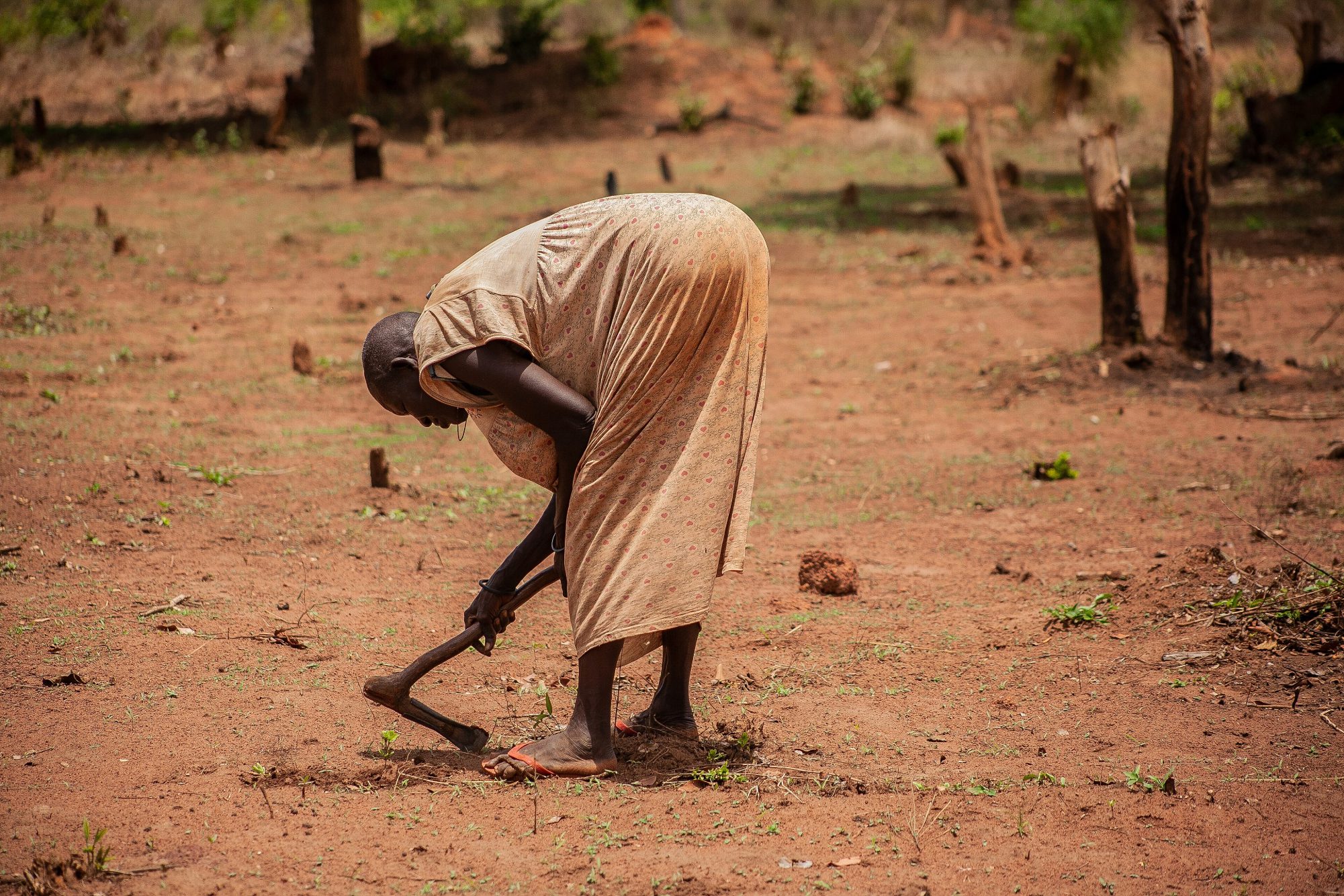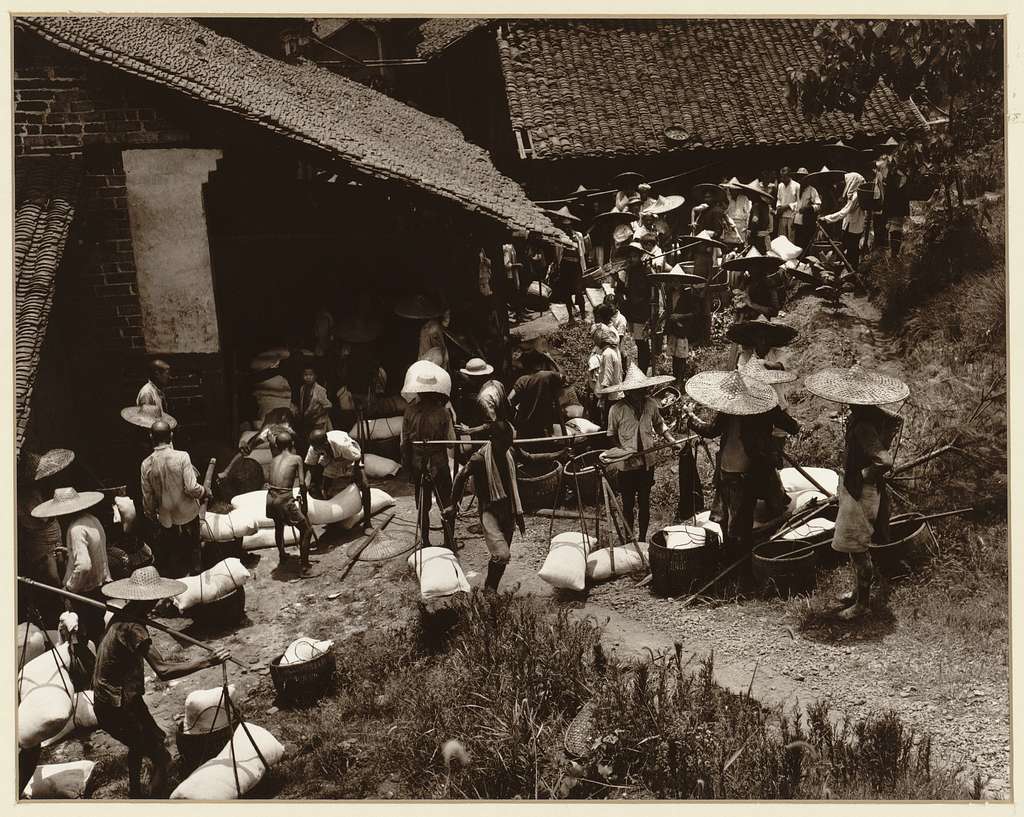This article was originally published in German in Le Monde Diplomatique German Edition No. 36.
Just a few years ago there was, it seemed, a consensus across the political spectrum that starvation was beyond the pale. One issue on which the Trump Administration in the United States, alongside Russia, China, the Africans and Arabs could agree upon—as well as the liberal Europeans—was that using hunger as a weapon of war was unacceptable. In 2018, in a rare moment of unanimity, all fifteen members of the United Nations Security Council voted in favor of resolution 2417 on armed conflict and hunger.
Six years on, there’s a tacit agreement that they didn’t really mean it. But rather than openly repudiate the principle, governments deny the facts about famine, or re-interpret facts and norms to be more permissive towards weaponizing starvation. The arguments of liberals and autocrats are different, but end up in the same place, treating hunger as an acceptable outcome of war.
Contemporary famines are man-made. That simple fact bears repeating time and again. The Famine Review Committee of the UN-accredited Integrated food security Phase Classification (IPC) system has convened twenty times since 2011 to examine whether the evidence for extreme hunger is sufficient to declare ‘famine’. On just one of those occasions was it for a food emergency primarily driven by something other than war. That was in Madagascar in 2021, where repeated droughts associated with climate change led to severe hunger in the far south of the island. In that case, the committee didn’t find evidence for famine.
But the idea of famine as a natural calamity still haunts our imagination. By default this hands an alibi to generals and politicians who starve their people. It’s a comfortable argument that the solution is growing more food not stopping starvation crimes.
—
Sudan should be a straightforward case. Two venal generals are fighting a war of pillage and starvation and reducing their people to famine. Each side has patrons in the Middle East. Russia has links to both—it is negotiating for a port on the Red Sea with the UN-recognized government and army while the Wagner Group has a partnership with the Rapid Support Forces paramilitary group.
Speaking at the UN Security Council in June, at a debate on how to alleviate the starvation siege of the Sudanese city of al-Fasher, Russia’s deputy ambassador was dismissive:
‘We are not inclined to overdramatize the problem of hunger in Sudan.’ Her remedy was investing in agriculture.
Sudan is the world’s worst food security emergency by the numbers. Of the country’s 48 million people, more than 25 million are need humanitarian assistance. Of these, the IPC estimates that 8 million are in ‘emergency’, which means that families are skipping meals, selling their last possessions, and that death rates among children are creeping up. More than 750,000 are in ‘catastrophe’, facing starvation.
Sudan’s famine is the product of layers of crisis. The country has a dysfunctional food system, consisting of mechanized commercial farms that grow sorghum, some of it for export, while it imports wheat to feed urban demand. This exacts a human and ecological toll. Over the decades, successive governments waged destructive counter-insurgencies in the peripheries, driving millions of people from their homes and leaving them dependent on food aid. And eight years ago, Sudan ran out of money to pay its import bill. Even before the outbreak of civil war in April 2023, the country faced its highest-ever levels of food aid needs.
The war turned crisis into calamity. Fighting began when the two generals heading the country’s junta fell out. General Mohamed Hamdan Dagolo, known as ‘Hemedti’ and head of the paramilitary Rapid Support Force (RSF) turned on his rival, General Abdel Fattah al-Burhan, commander of the regular Sudan Armed Forces (SAF). The coup didn’t succeed, and instead rival fighters destroyed the national capital and fought battles across the length and breadth of the country. RSF militiamen pillage everything in their path—towns, hospitals, markets and agricultural schemes. SAF bombs key infrastructure and shuts off aid for areas controlled by the RSF, such as most of Darfur, where the hunger is worst.
—
It’s unsurprising that the men who made Sudan’s famine don’t want to admit to the facts of the crime, or their culpability.
In his seminal book, States of Denial, Stanley Cohen[1] analyzes the stratagems for denial used by perpetrators and apologists of atrocities. His framework transfers to famine crimes. Cohen begins with simple factual denial.
Responding to the IPC report, Sudan’s ambassador, al-Harith Mohamed, began by dismissing the evidence. A member of his government sits on the committee that approves the IPC figures, and vetoed information from aid agencies that the government hadn’t approved, such as those operating in the vast areas controlled by the RSF. Despite abandoning the capital Khartoum for an interim headquarters in Port Sudan, al-Burhan still possesses the legal accoutrements of sovereignty, and the UN complies.
Cohen’s next kind of denial is ‘interpretative denial’—accepting the facts but claiming that they’re not what they appear to be.
Mohamed still faced the challenge that the numbers facing starvation are among the highest ever recorded, and set to grow. He said that 750,000 was an ‘insignificant’ two percent of the population and would reduce if there were a good harvest.
He went on to blame hunger on the depredations of the RSF, describing them as having looted the harvests. There was, he said, enough food—it was just that whenever farmers tried to harvest their crops, the RSF came to steal it.
Cohen’s third kind of denial is ‘implicatory’—giving a different meaning to the events and justifying atrocities.
The Sudanese version of this is that declaring ‘famine’ is the pretext for an international takeover of the country. In turn, this justifies an extreme response.
At the end of his press conference, Mohamed set aside his speaking notes, became agitated and accused the RSF of working ‘maliciously with specific international circles . . . to develop a narrative whereby famine could be from dictated from above … [to] give a recipe for those ill-wishers to intervene in Sudan.’ His parting words were, ‘If you do this the Biblical Armageddon war is going to be launched in Sudan.’
He didn’t name the members of this conspiracy, but the Sudanese foreign ministry has pointed the finger at the United Arab Emirates and its western allies, including the UK and US. The logic is that in order to defend Sudan against this existential threat, there is no limit to the measures that can be deployed. It’s a version of what the Cameroonian political theorist Achille Mbembe calls ‘neo-sovereigntism’—the last-ditch assertion of national sovereignty as a shield behind which democracy can be jettisoned and human rights violated.
—
Variants of this pattern of denial can be seen in Syria and Yemen, where western adversaries and allies each rehearsed explanations for why starvation wasn’t occurring and why it didn’t matter. But the most blatant case Tigray region of Ethiopia.
In November 2020, the Ethiopian Government went to war against the region of Tigray. The story of how the war erupted is hotly contested. What cannot be disputed is that the war involved the systematic of destruction farms and foodstuffs, hospitals and water supplies, followed by a rigorous starvation siege of the region. An estimated 375,000 people died in the famine. In July 2021, the IPC Famine Review Committee warned of imminent famine. A UN declaration of famine would have exposed the government’s starvation siege—so the government stopped the UN from collecting any humanitarian data, and expelled UN staff who objected. Famine proved a cheap and effective weapon: it weakened the Tigrayan resistance, ultimately compelling the Tigrayans to plead for peace on the government’s terms.
Earlier this year, a report by the Inter-Agency Standing Committee, a humanitarian watchdog, found that the UN had succumbed to political pressure and abandoned humanitarian principles. Rarely has it issued such a devastating indictment of moral failure by a UN country team.
—
Israel’s campaign against Gaza, unleashed in the aftermath of Hamas’s breach of Israel’s security fence and its atrocious massacre of civilians, is today’s highest-profile case of mass starvation.
Prior to 7 October 2023, the Israeli government had explicitly put the Palestinians of Gaza on a ‘diet.’ After Hamas took over the administration of Gaza in 2006, the Coordination of Government Activities in the Territories (COGAT) restricted all commodities crossing into Gaza. A document known as the ‘Red Lines’[2] detailed every element of this food control regime, which kept malnutrition very low, but left the population vulnerable.
After 8 October, Israel’s military onslaught systematically destroyed objects indispensable to the survival of the civilian population—the definition of the act that constitutes the war crime of starvation. All incoming supplies were blocked for several weeks.
By December, the IPC was reporting extreme figures for food emergency. Never before had food security specialists documented such a rapid reduction of a population to crisis. In March, it warned of imminent famine.[3] This was sufficient for the International Court of Justice, to order Israel to:
Take all necessary and effective measures to ensure, without delay, in full co-operation with the United Nations, the unhindered provision at scale by all concerned of urgently needed basic services and humanitarian assistance, including food, water, electricity, fuel, shelter, clothing, hygiene and sanitation requirements, as well as medical supplies and medical care to Palestinians throughout Gaza.[4]
The Israeli judge nominated to sit on the ICJ, Aharon Barak, voted for this provision, making the decision unanimous. He objected strenuously to the charge of genocide against Israel but accepted that it had unmet obligations under International Humanitarian Law.
Senior Americans, including USAID Administrator Samantha Power, spoke of famine in northern Gaza. This was, it appears, enough for Israel to permit more food across the border, pausing the slide into outright famine. It did not, however, stop the Israel Defense Force from mounting an assault on Rafah in southern Gaza, that closed the main humanitarian access route, disrupted food distributions and medical care, and once again forced the homeless population to relocate.
The exceptional character of the Israeli onslaught is tellingly illustrated by the number humanitarian workers killed in the line duty. Between October and December 2023, more than 160 aid workers died in the Gaza Strip, compared to 112 in the rest of the world for the entire year. This story continued into 2024, with more than 70 percent of global aid worker deaths in the Occupied Palestinian Territories (97 out of 133).
The charge of being responsible for famine stung Israel, and it responded with denialist arguments. Israel’s challenge is that the Gaza crisis is under the spotlight, and senior Israelis made extreme and rash public statements about their intent to starve Gaza at the onset of the conflict. Defense Minister Yoav Gallant infamously said, ‘I have ordered a complete siege on the Gaza Strip. There will be no electricity, no food, no fuel, everything is closed… We are fighting human animals and we are acting accordingly.’ Rarely has the intent to starve a population been so candidly communicated. However, Israel—and its American ally—are also sensitive to legality, and Israeli counsel at the ICJ later downplayed the remarks as an emotional outburst not indicating official policy.
Israel’s factual denial is easily disposed of. COGAT released data for trucks arriving at the entrypoints into Gaza, as a purported refutation of the IPC.[5] A group of Israeli nutritionists published further details using the same method.[6] The problem is that these don’t stand up to scrutiny: the data are opaque and the method—a simple calorie-counting exercise—was long ago abandoned by food security analysts. Even if correct, the number of sacks of flour crossing the border tells us nothing about how those foodgrains are being delivered to those in need, what other essential nutritional supplies are reaching the starving, what is being done to meet water, sanitation and therapeutic feeding needs, and whether the poorest have the money to buy food available in the market.[7] The purpose of this kind of denial is to concoct a story for the general public, not to win an argument on the merits.
Israel’s ‘interpretative denial’ took the form of arguing that because the IPC forecast famine in March, and then reported a different situation in June, its earlier story was a malicious invention. In fact, the June IPC report describes how aid deliveries increased in April and May—sparked in part by its own previous report—and averted the worst.
Israeli critique also insinuated that alleging famine could have only been motivated by sympathy for Hamas. Among the many problems with this line of argument is that the American government’s own FEWS NET—its famine early warning system, a sibling of IPC—made a prediction that was even more alarming, concluding that famine was probably already underway.
The crucial denialism over Gaza is twisting the law to make the case that what Israel is doing is justifiable and lawful, the tragic outcome of a war that Israel was compelled to fight. The substantive argument is that Israel is acting in self-defence in the face of an existential threat to its national survival—an echo of the ‘sovereigntist’ case made by African and Arab autocrats.
The crucial arguments played out in Washington DC.
Under a clause in the Foreign Assistance Act, the US is obliged to cut arms sales to any country found to have blocked delivery of US aid. Israel’s actions in Gaza, including the high-profile failure of its police to intervene to stop vigilantes overrunning aid convoys and spoiling their aid, raised the question of whether this would make it impossible for the Administration to continue supplying arms to Israel. It was required to report to Congress on this question. Humanitarian professionals in the Administration were clear that Israel was blocking aid and drafted text accordingly. However, the final edit was taken out of their hands, reaching a conclusion favorable to continued military assistance to Israel. This prompted the resignation an advisor who had been involved in compiling the original report.
After the Prosecutor of the ICC asked for arrest warrants against two of the most senior Israeli leaders—Prime Minister Benjamin Netanyahu and Defense Minister Yoav Gallant—inter alia for the war crime of starvation, US lawyers began revisiting their opinions on the matter. The crime is defined in the Rome Statute, Article 8(2)(b)(xxv): ‘Intentionally using starvation of civilians as a method of warfare by depriving them of objects indispensable to their survival, including wilfully impeding relief supplies as provided for under the Geneva Conventions.’
The crucial question here is what constitutes ‘intent.’ The majority view among lawyers is that provided the act is deliberate and the foreseeable outcome is starvation of civilians, the action is prohibited.[8] A narrow reading is that the intent to starve must be specific and overriding.[9] The US military interprets this prohibition in a way that permits ‘incidental’ starvation of civilians during a siege—which de facto licenses the al-Asad regime’s ‘kneel or starve’ tactics, because their purpose was to press the enemy to surrender, not solely to starve civilians.
American military attorneys argue that it is International Humanitarian Law, not International Criminal Law, that binds their actions. The distinction is crucial, as it is those same lawyers, rather than independent judges, who interpret and apply that law.
Their reading also implies that, after an authoritative famine warning has been sounded—as in Sudan or Gaza—an army commander can continue starvation tactics, knowingly pushing people into famine without being criminally responsible for starving them. In short, it makes the war crime of starvation so narrow as to be irrelevant to any contemporary case of wartime starvation.
The bar on starvation is being lowered to be consistent with Israeli practice, rather than Israel’s conduct being judged against higher international standards. In turn, a permissive approach to starvation crimes is being universalized. We shouldn’t be surprised if famines become more common and more lethal.
[1] Stanley Cohen, States of Denial: Knowing about atrocities and suffering. Cambridge, Polity Press, 2001. https://www.wiley.com/en-ae/States+of+Denial%3A+Knowing+about+Atrocities+and+Suffering-p-9780745623924
[2] Gisha,’ Reader: “Food Consumption in the Gaza Strip – Red Lines”,’ https://www.gisha.org/UserFiles/File/publications/redlines/redlines-position-paper-eng.pdf
[3] Famine Review Committee of the Integrated food security Phase Classification system (IPC), Gaza Strip: March 2024, March 18, 2024. https://www.ipcinfo.org/ipcinfo-website/alerts-archive/issue-97/en/
[4] International Court of Justice, 2024. Application of the Convention on the Prevention and Punishment of the Crime of Genocide in the Gaza Strip (South Africa v. Israel), Request for the Modification of the Order of 26 January 2024 Indicating Provisional Measures, Order. 28 March, General List No. 192. Para. 51(2)(a). https://www.icj-cij.org/sites/default/files/case-related/192/192-20240328-ord-01-00-en.pdf
[5] COGAT, ‘Food and Security in the Gaza Strip: Response to IPC report,’ March 6, 2024. https://govextra.gov.il/media/dgibjjca/cogat-assessment-food-and-food-security-in-the-gaza-strip-response-to-ipc-report.pdf
[6] Naomi Fliss-Isakov et al., ‘Nutritional Assessment of Food Aid Delivered to Gaza via Israel during the “Swords of Iron” War,’ working paper, June 2, 2024. https://biochem-food-nutrition.agri.huji.ac.il/arontroen/publications/nutritional-assessment-of-food-aid-delivered-to-gaza
[7] Francesco Checchi, Review of working paper by Fliss Isakov et al. on food aid to Gaza, May 27, 2024, https://gisha.org/UserFiles/File/LegalDocuments/HCJPetition2024/Legal_Opinion_fchecchi_27052024.pdf
[8] Tom Dannenbaum, ‘Nuts & Bolts of Int’l Criminal Court Arrest Warrant Applications for Senior Israeli Officials and Hamas Leaders,’ Just Security, May 20, 2024, https://www.justsecurity.org/95864/international-criminal-court-arrest-warrants-israel-hamas/
[9] Geoff Corn, Emanuela-Chiara Gillard, ‘The War Crime of Starvation – The Irony of Grasping at Low Hanging Fruit.’ MADN-LAW, United States Military Academy, May 15, 2024



